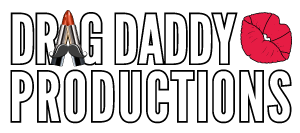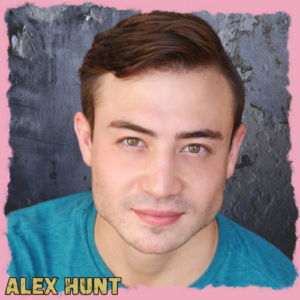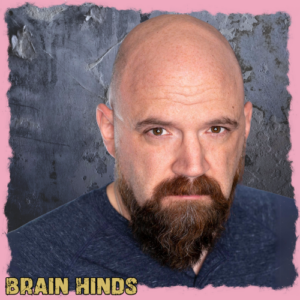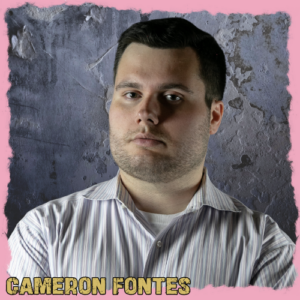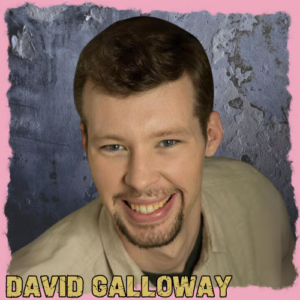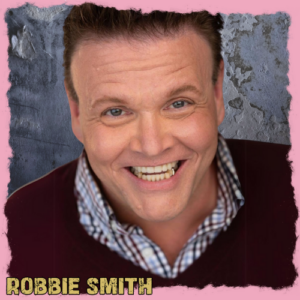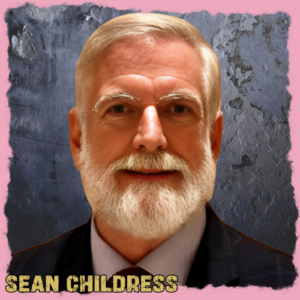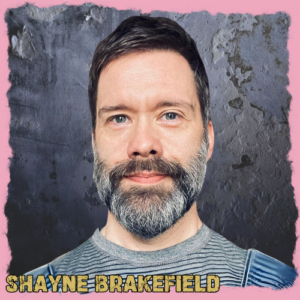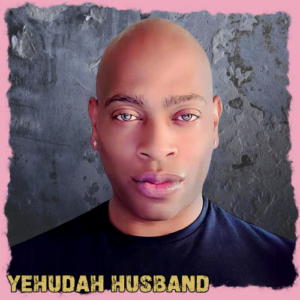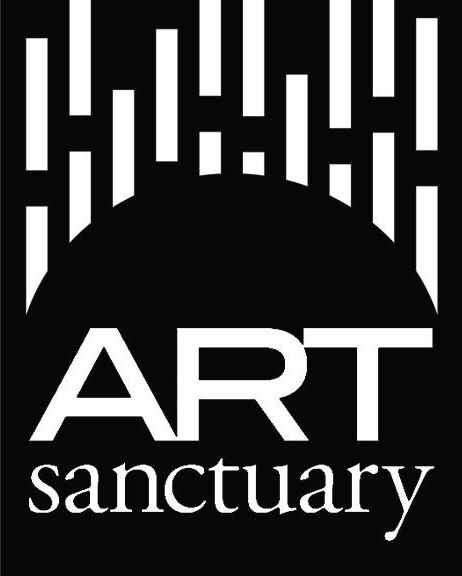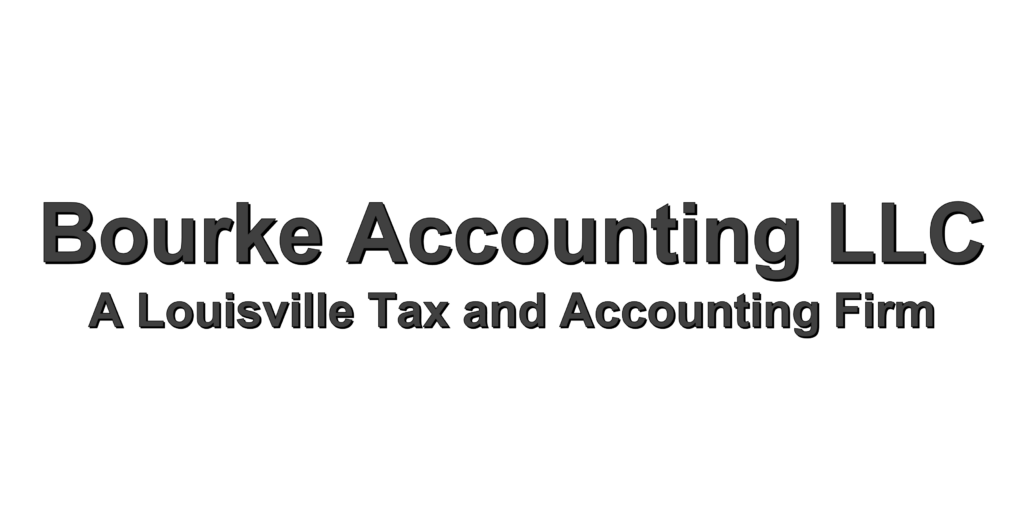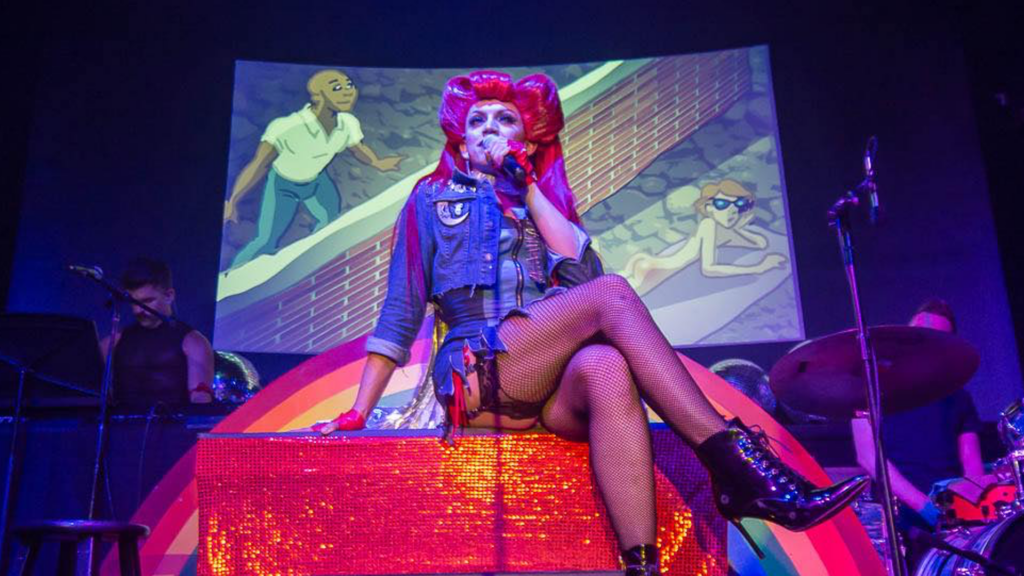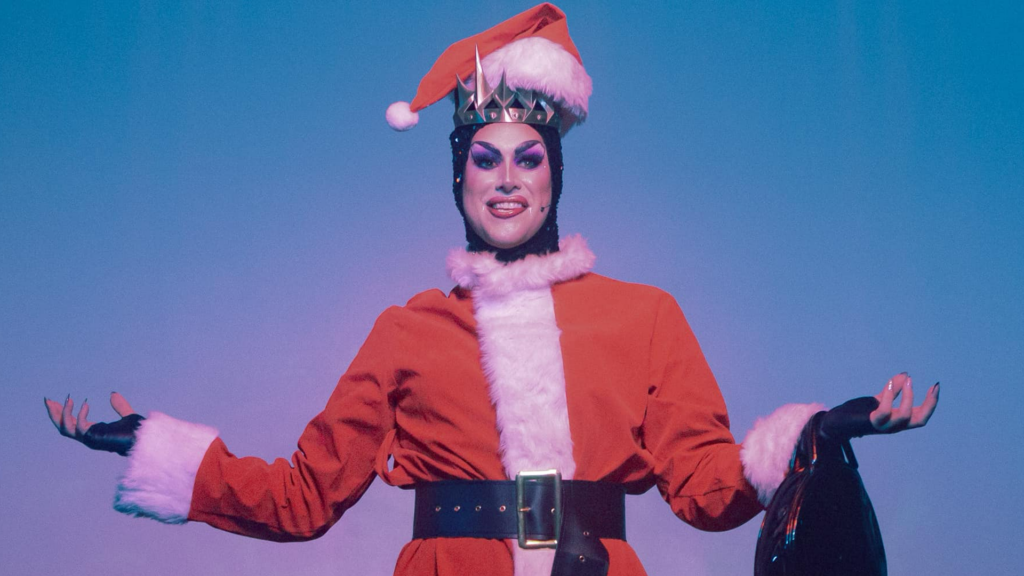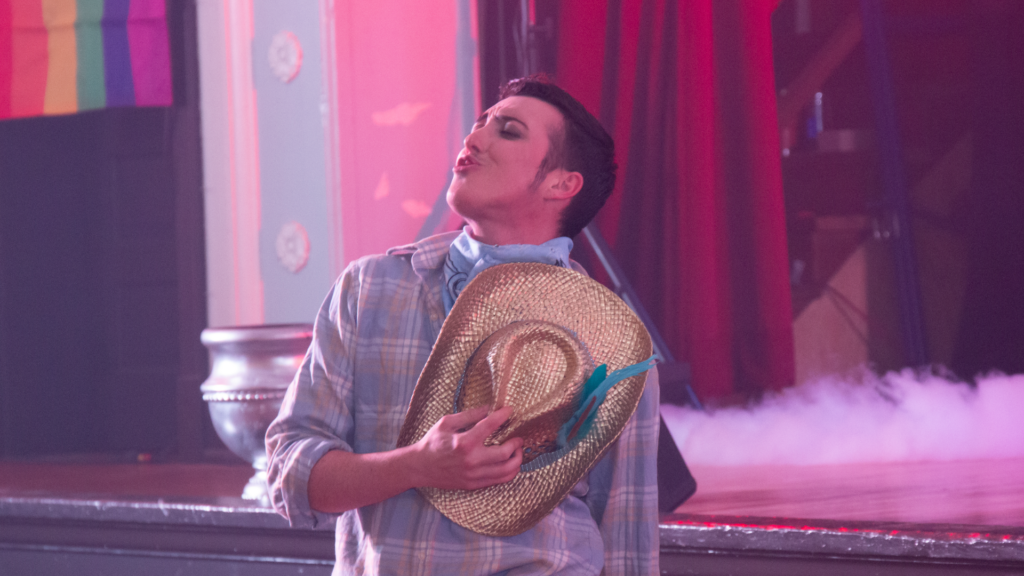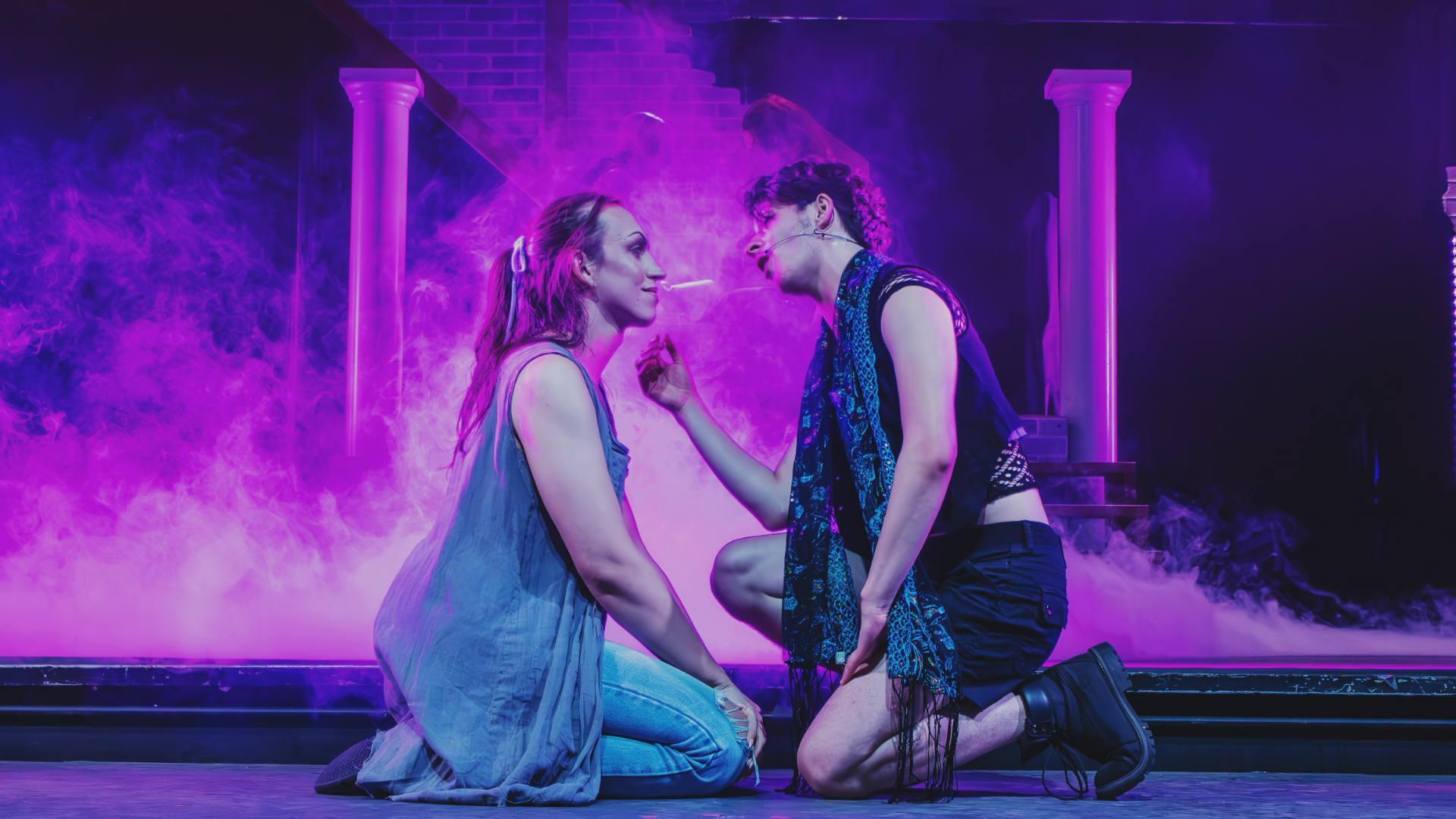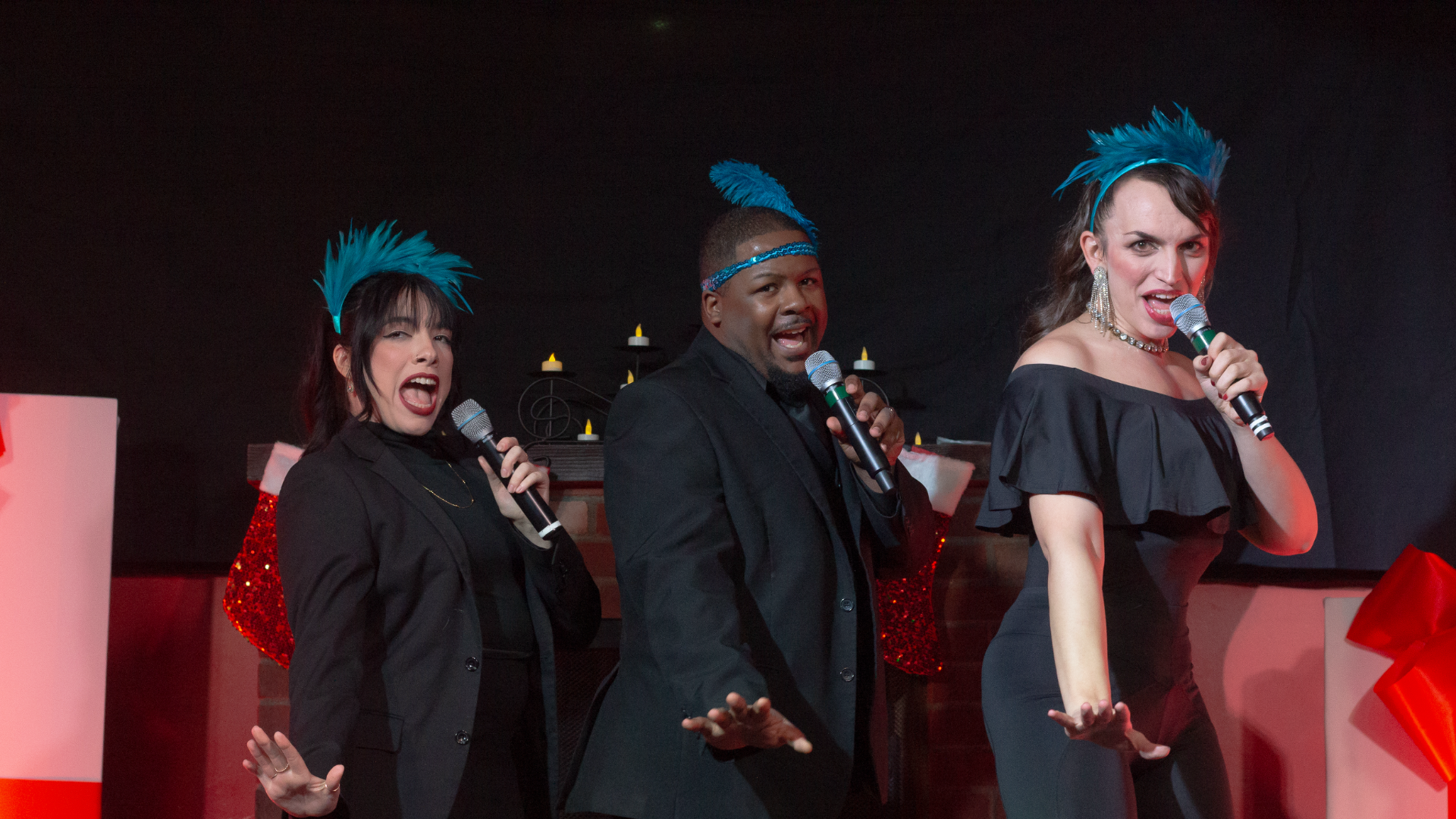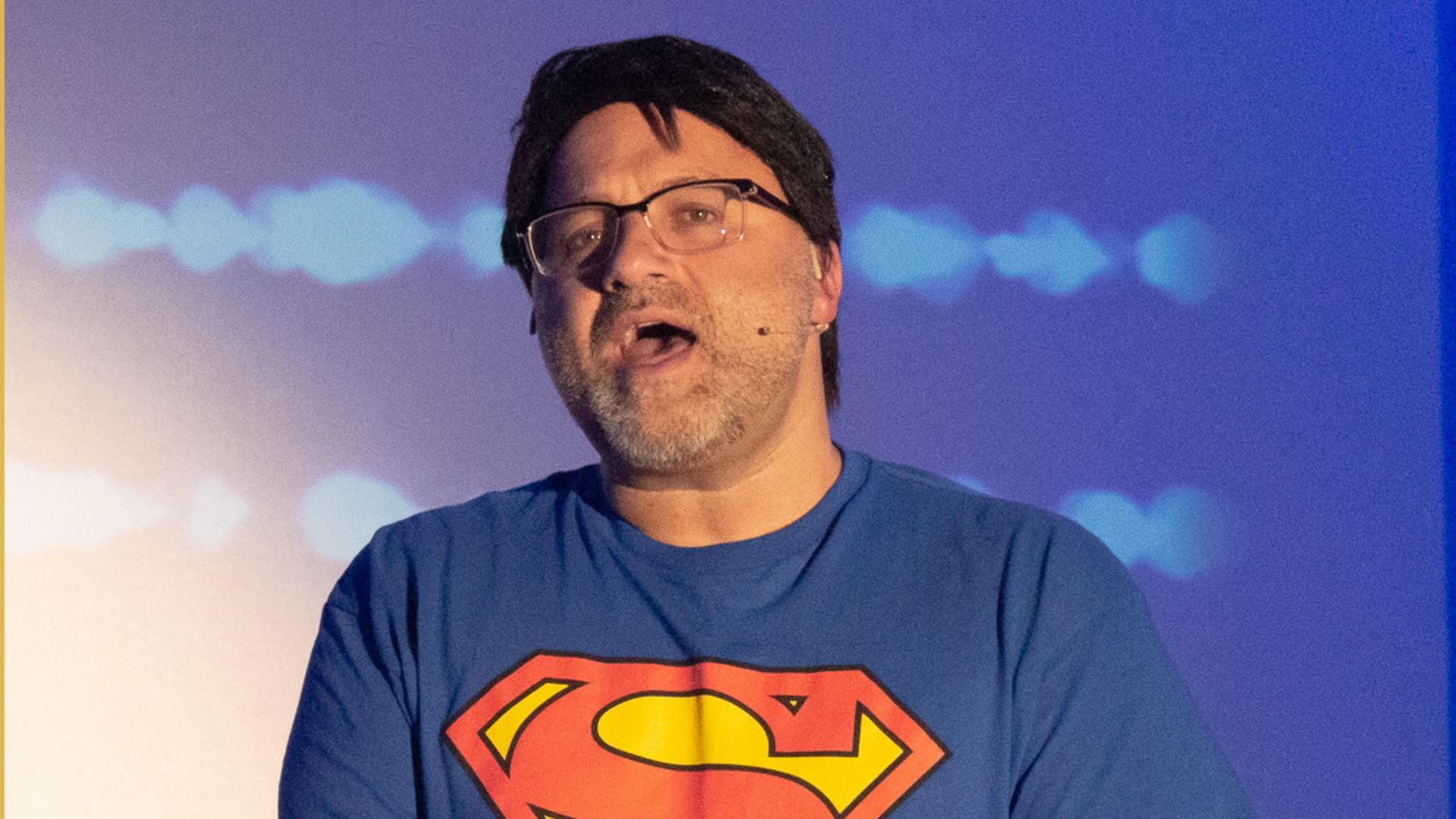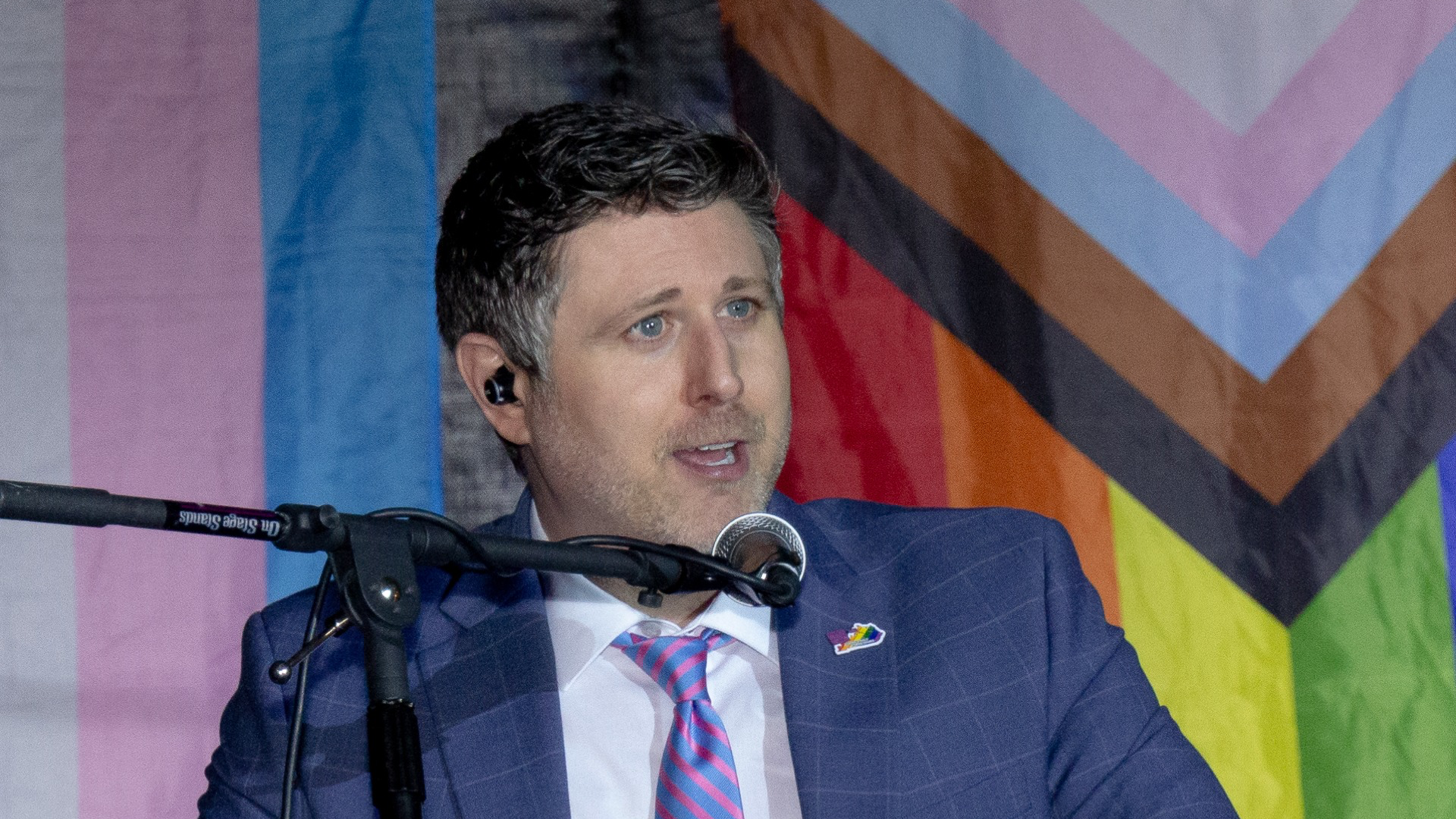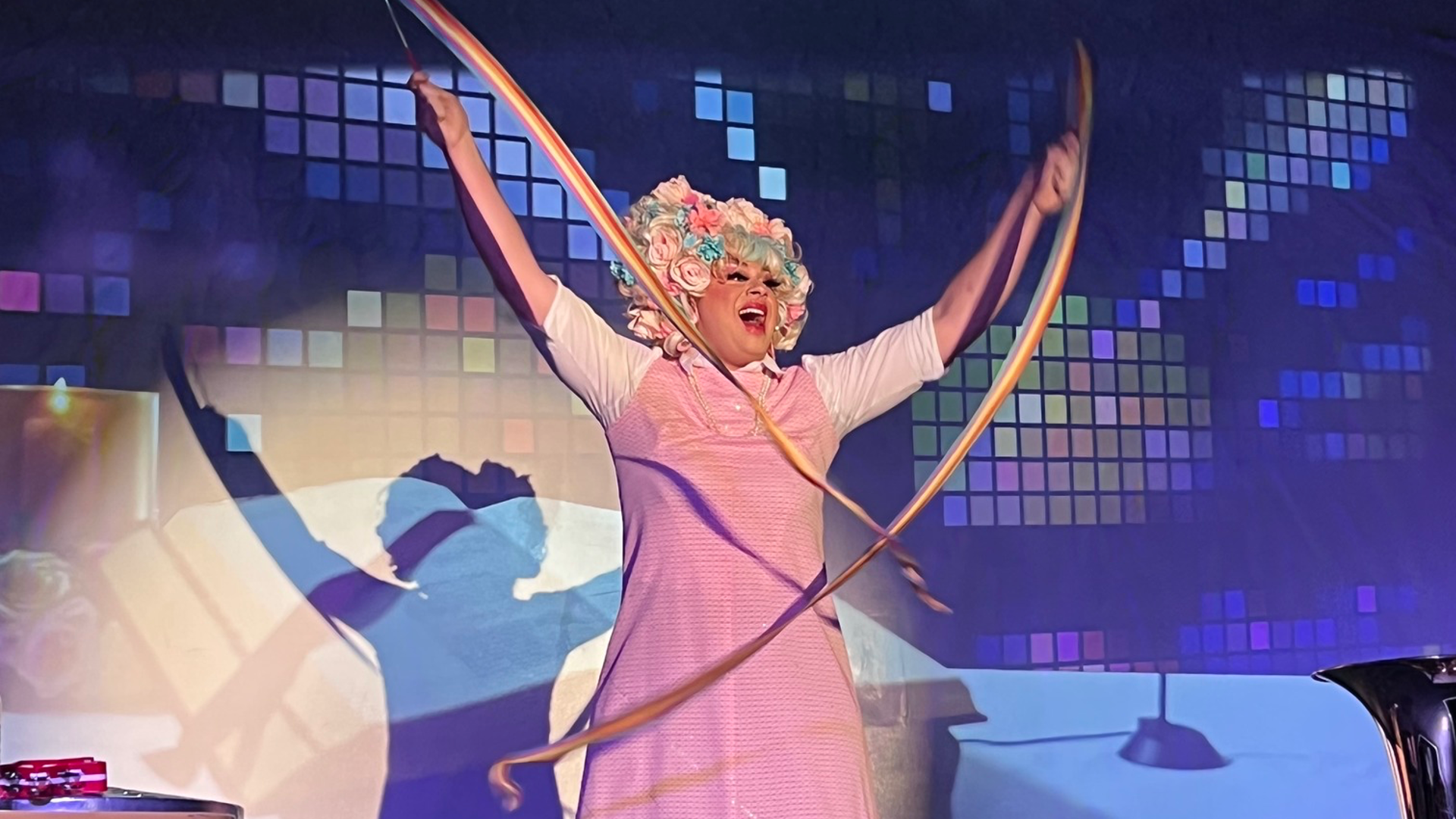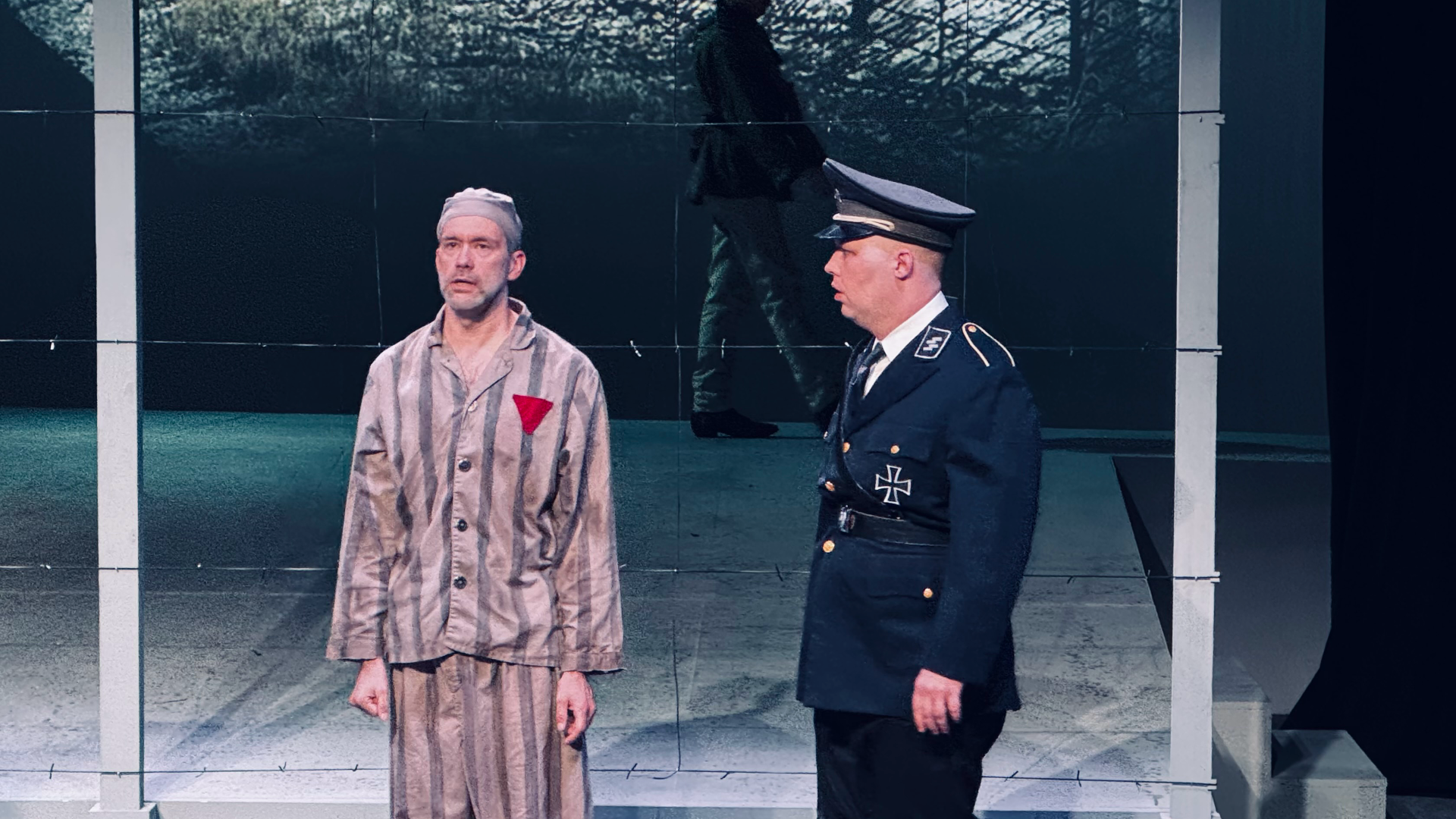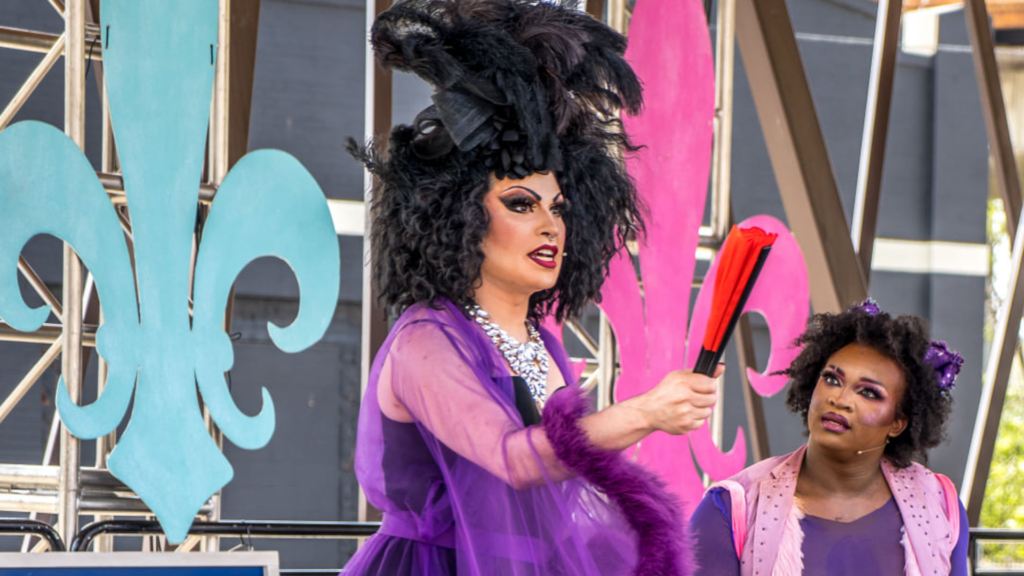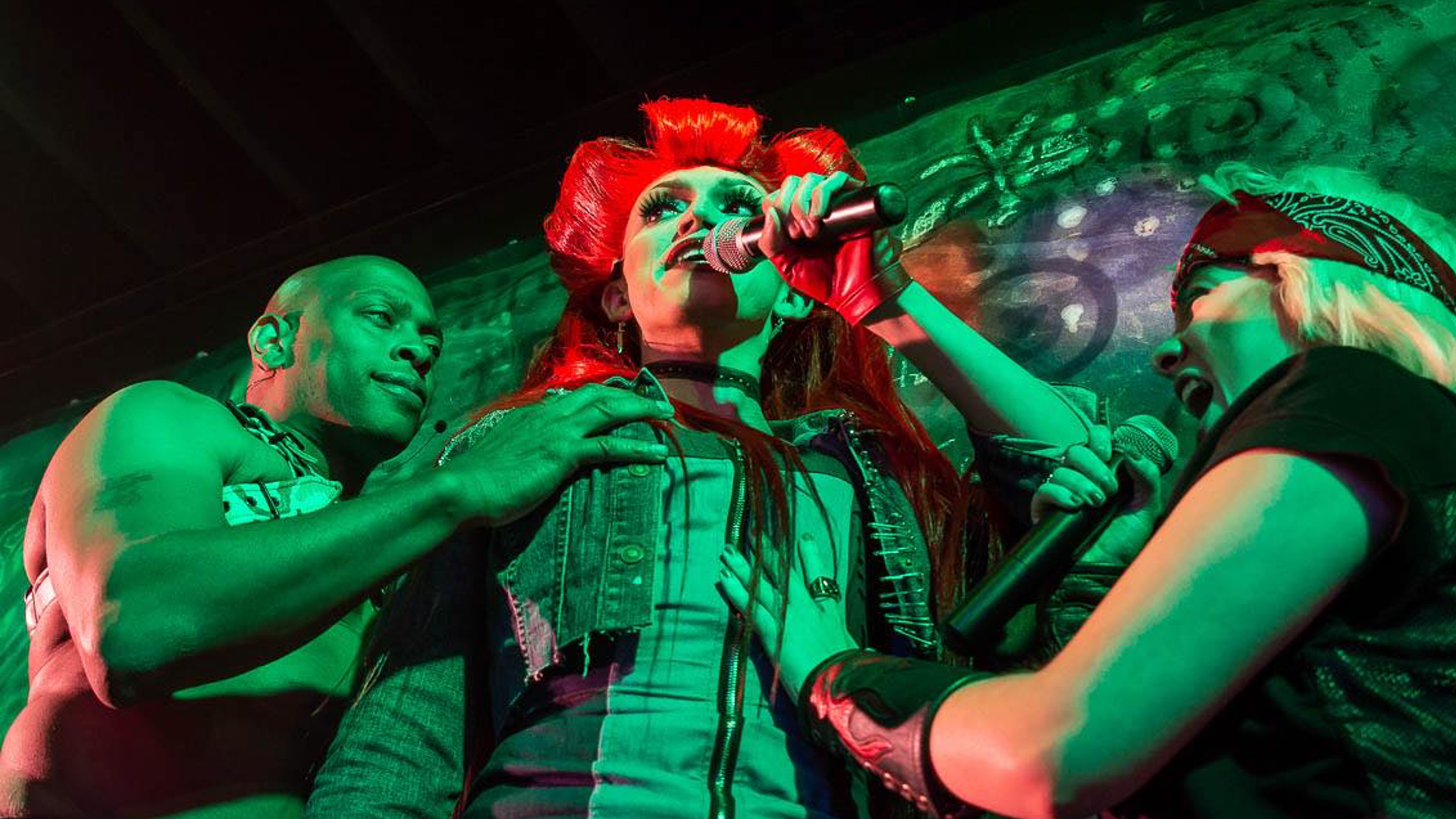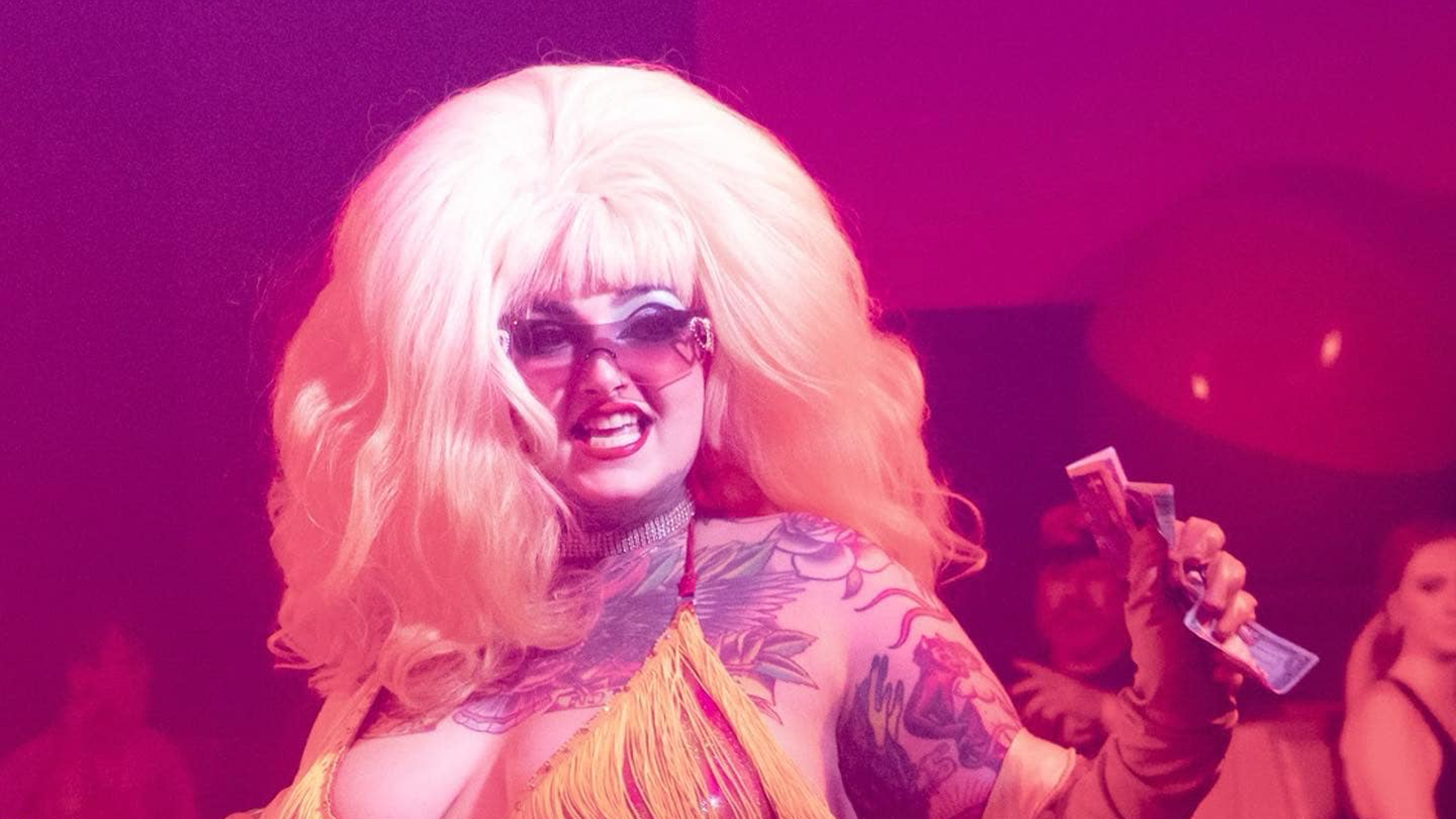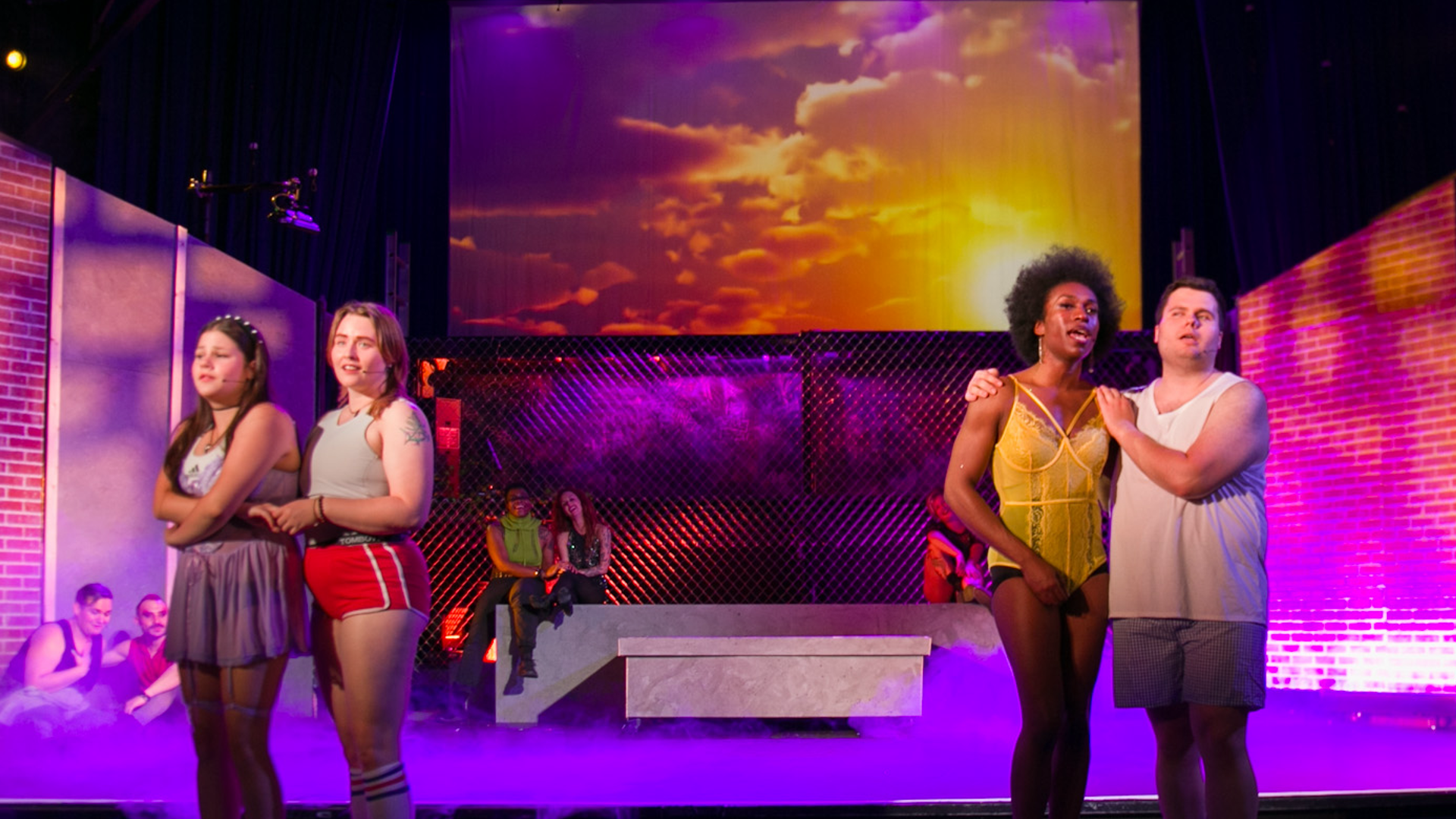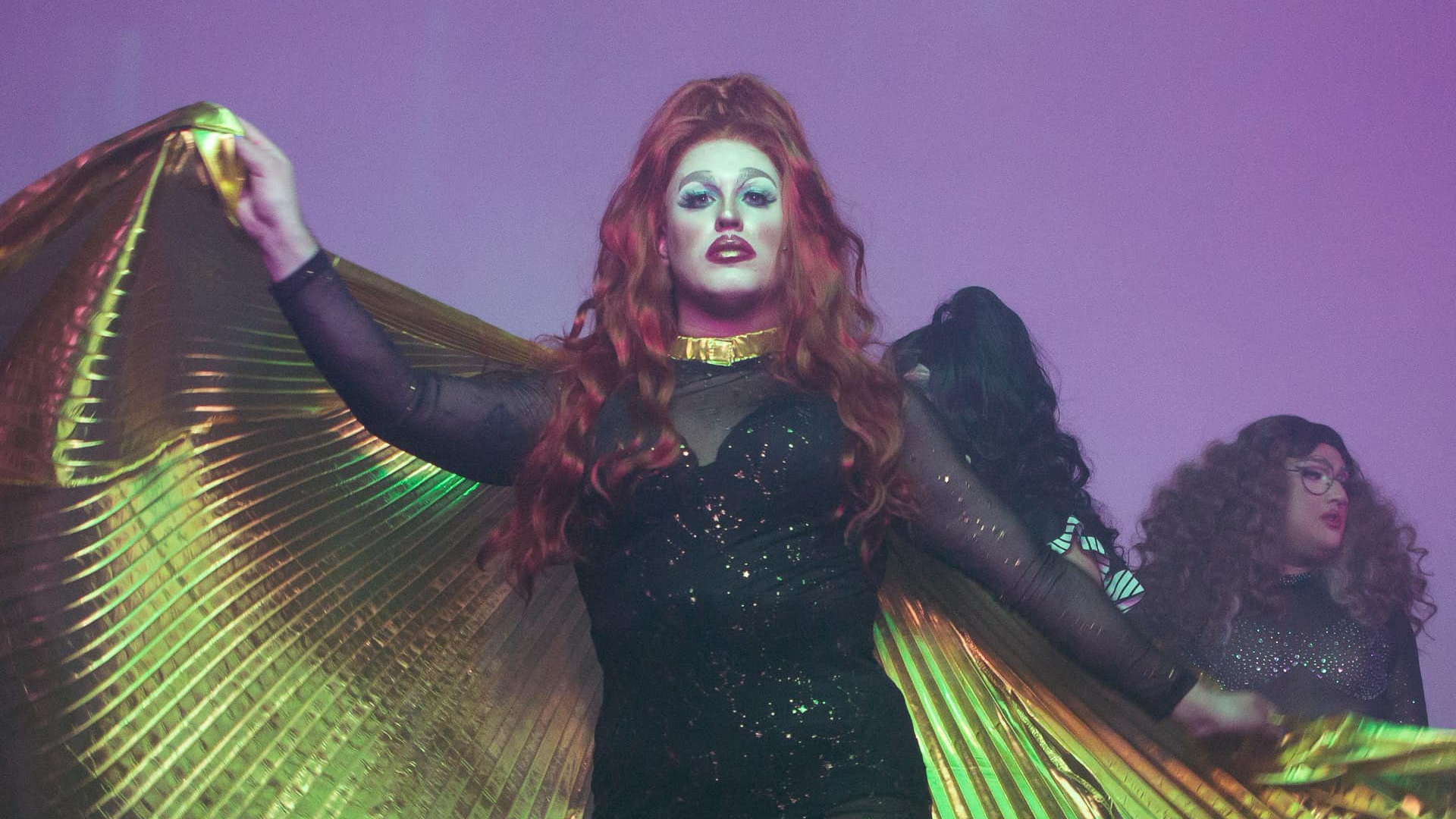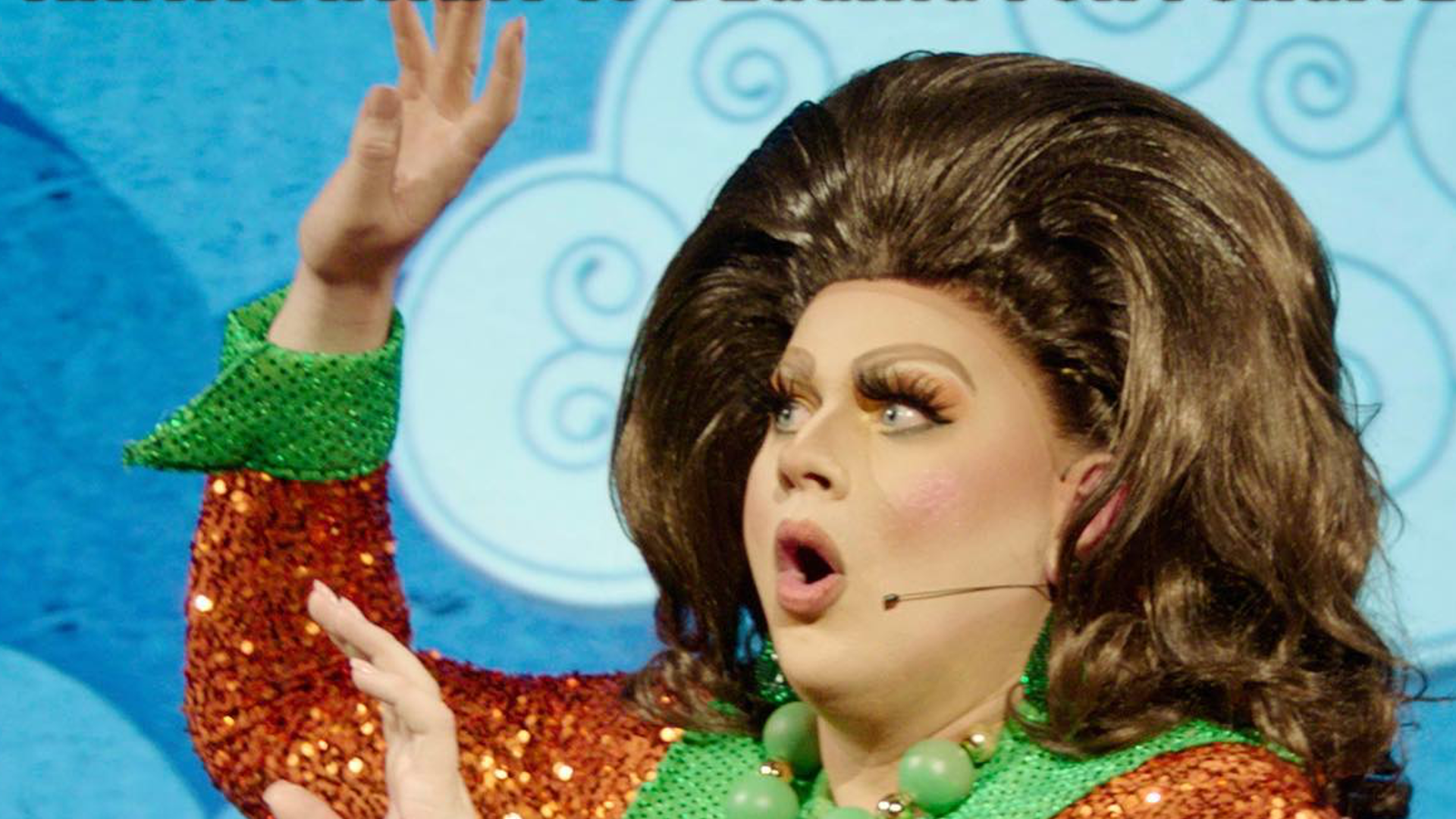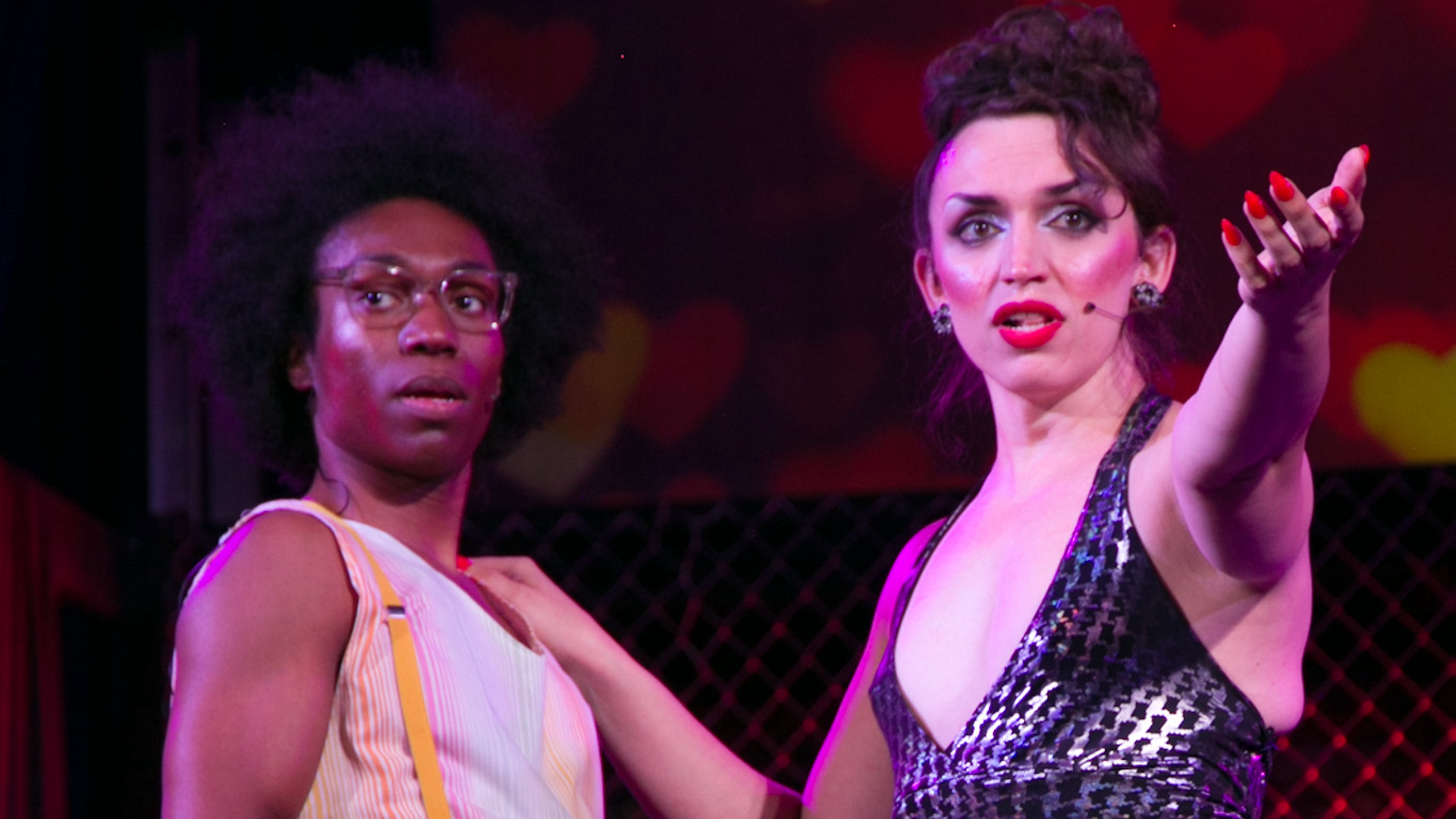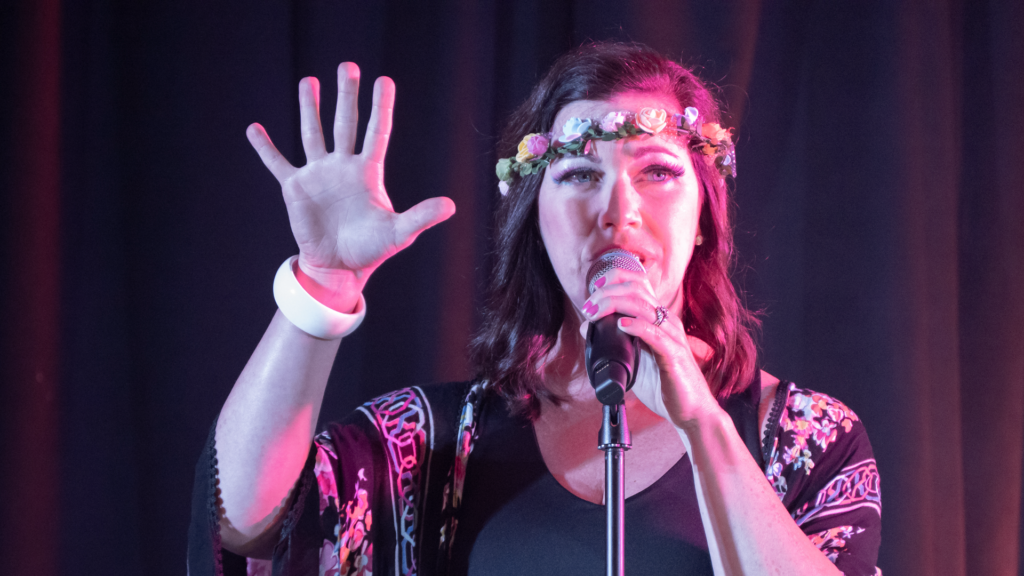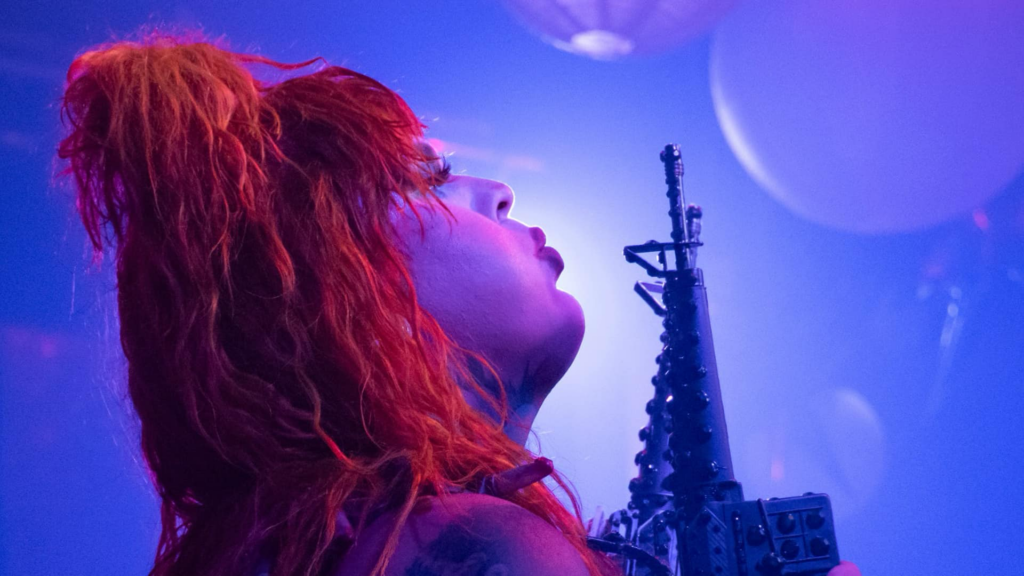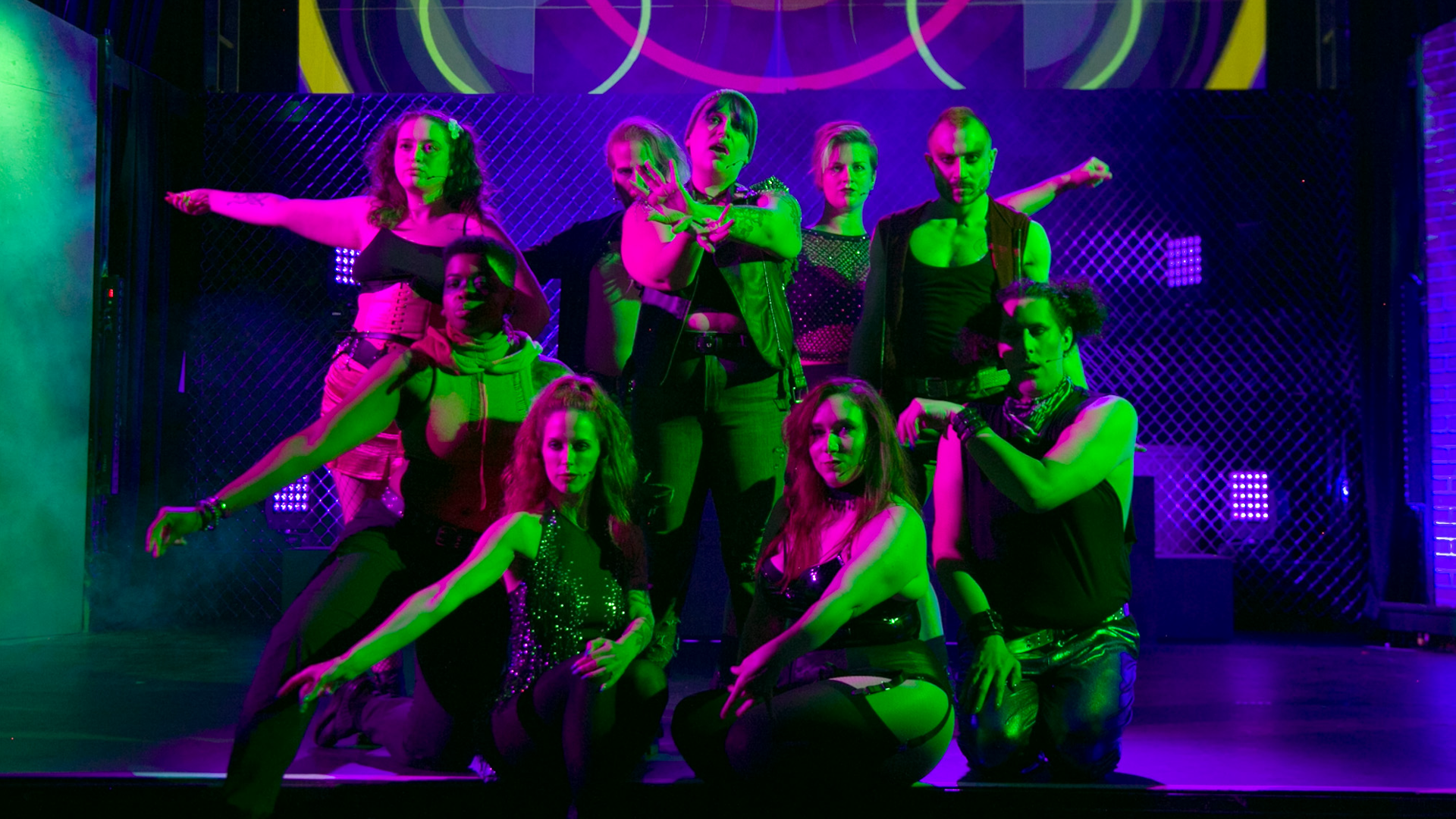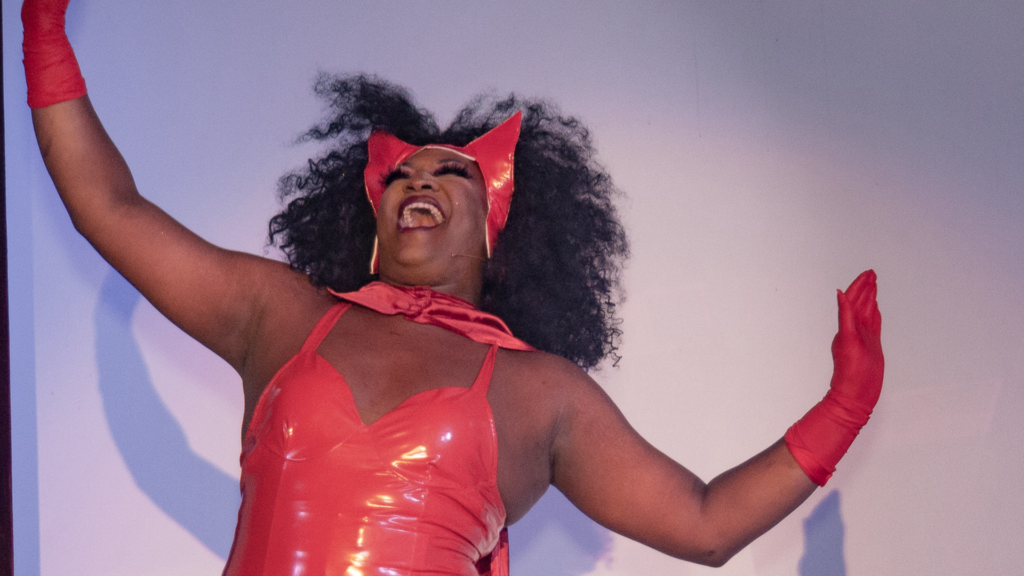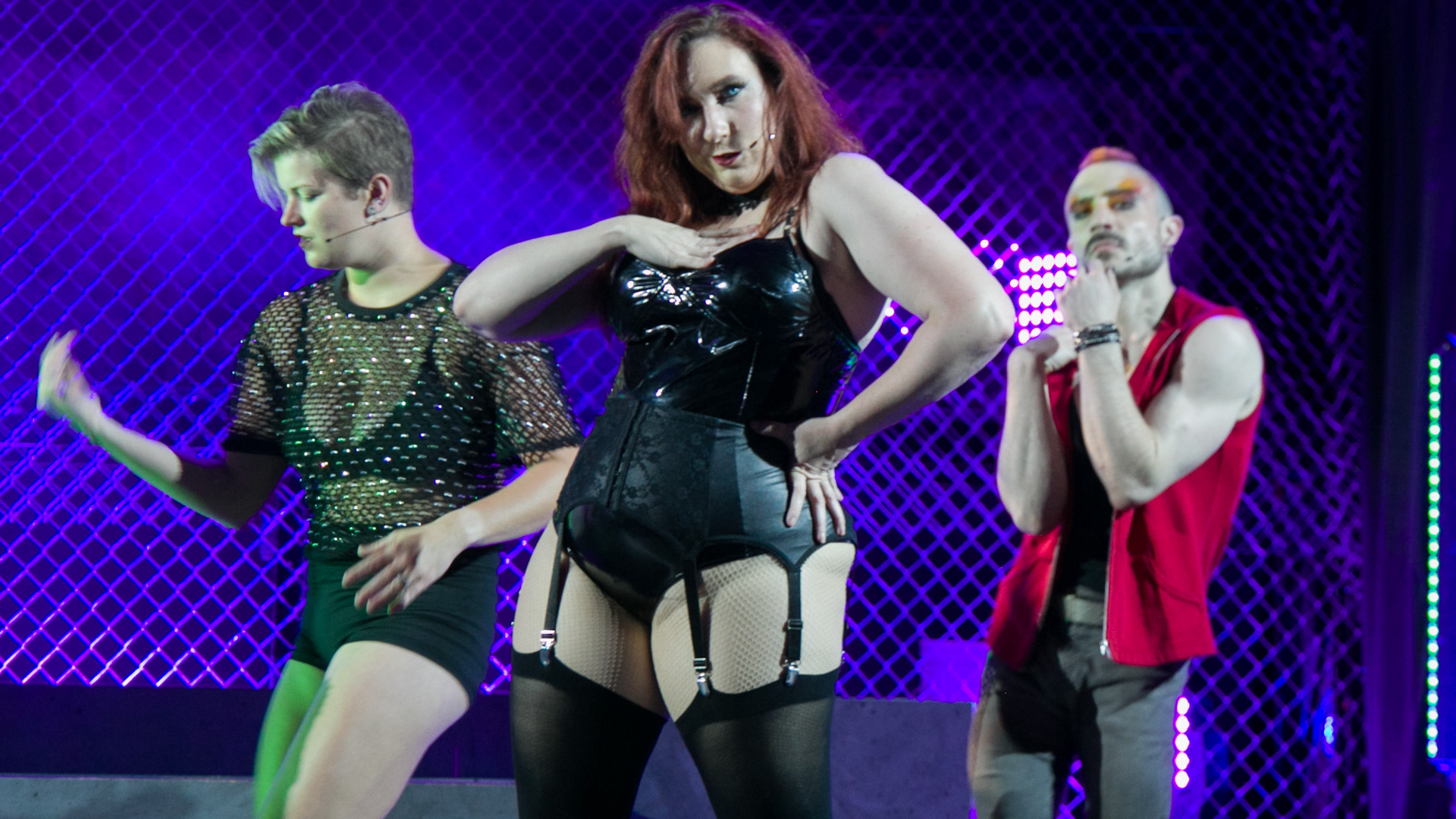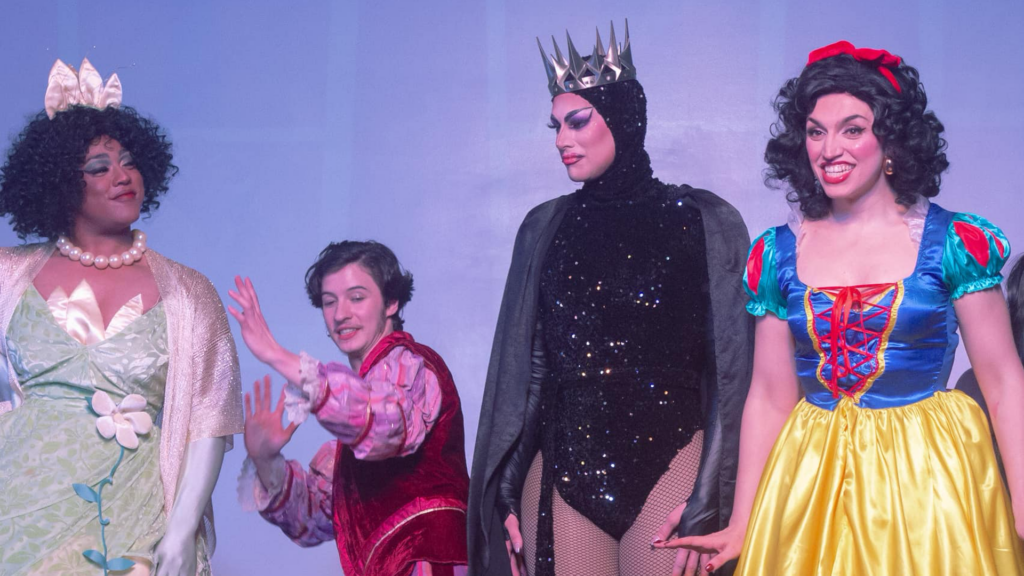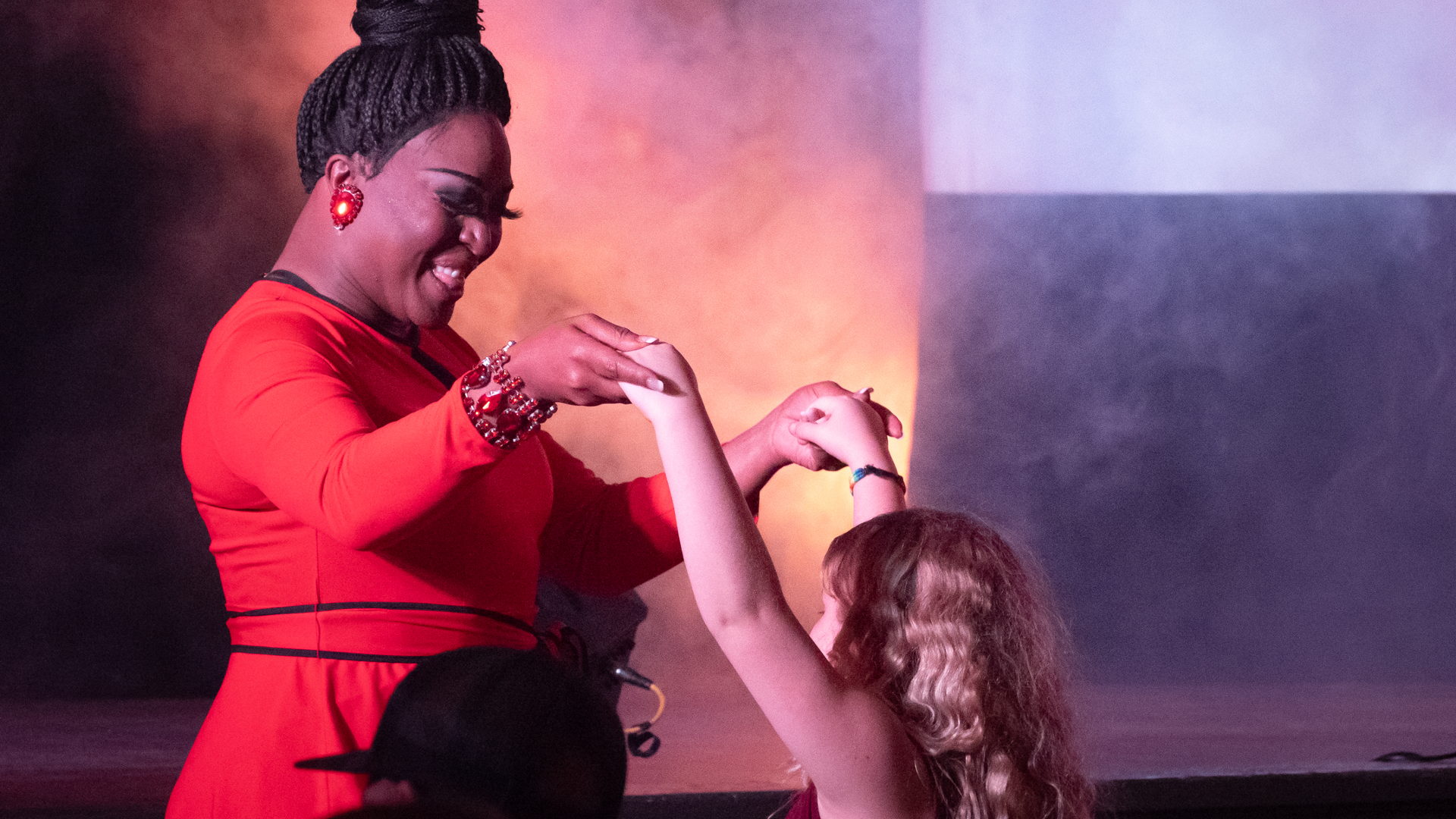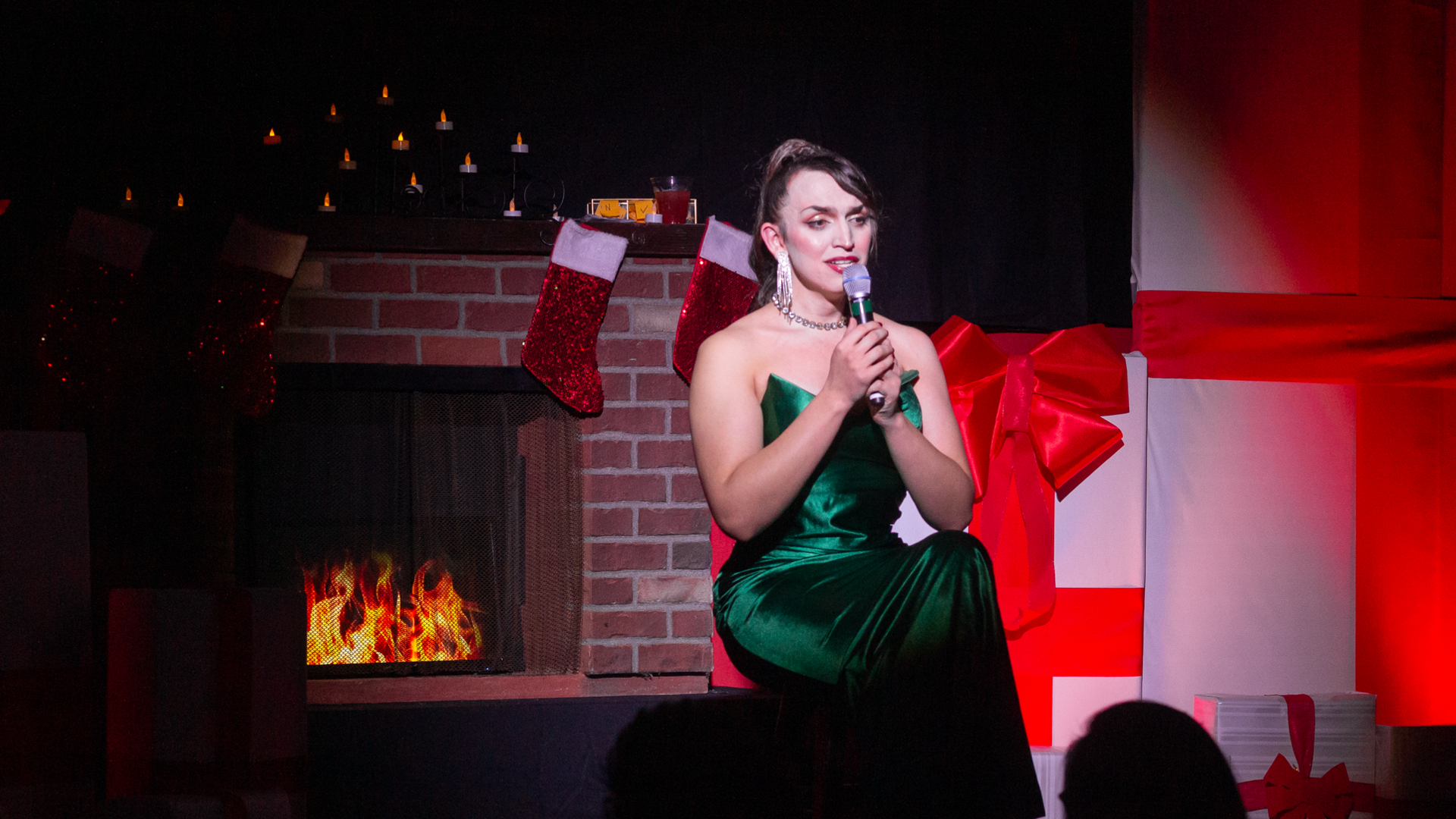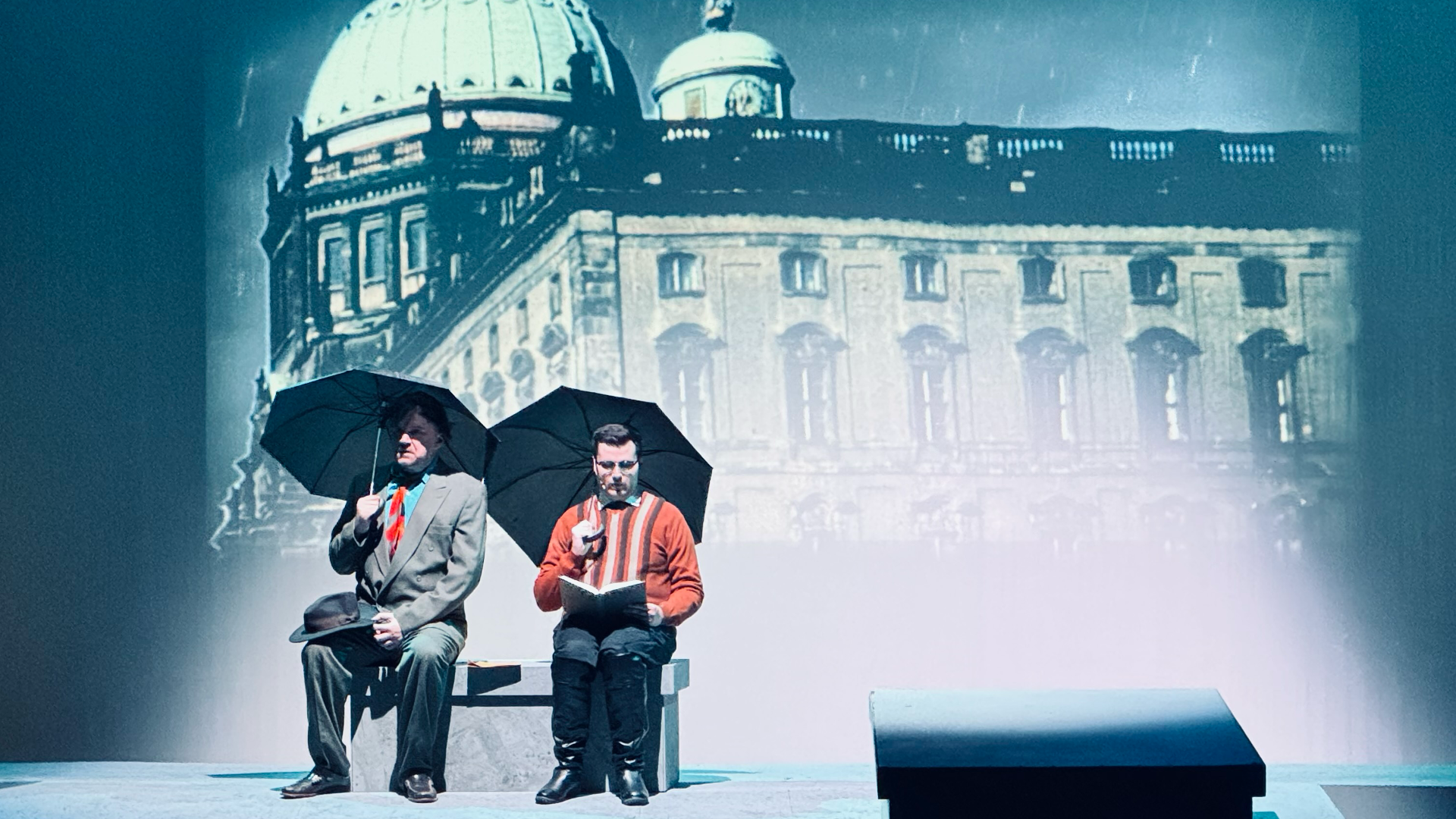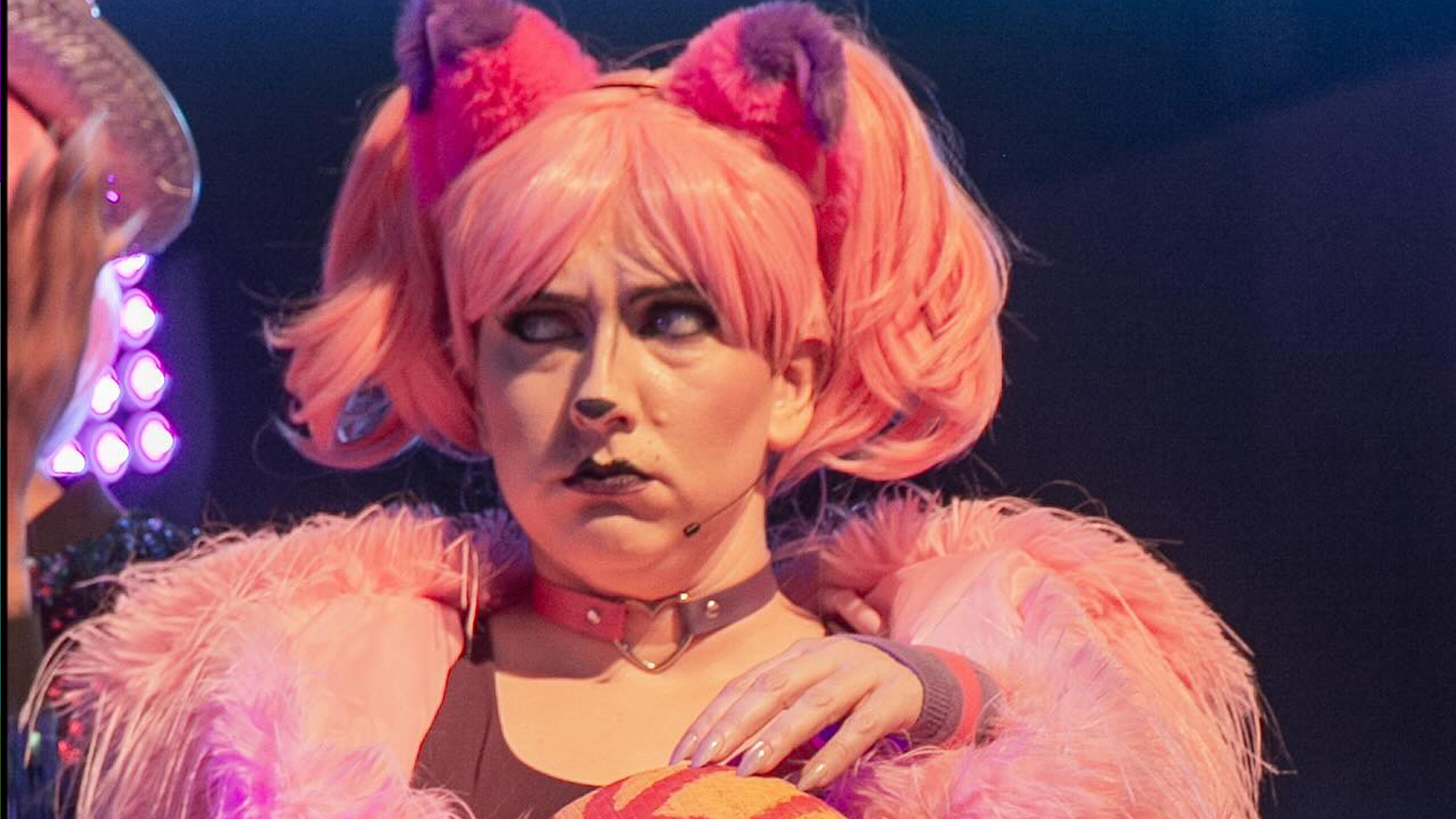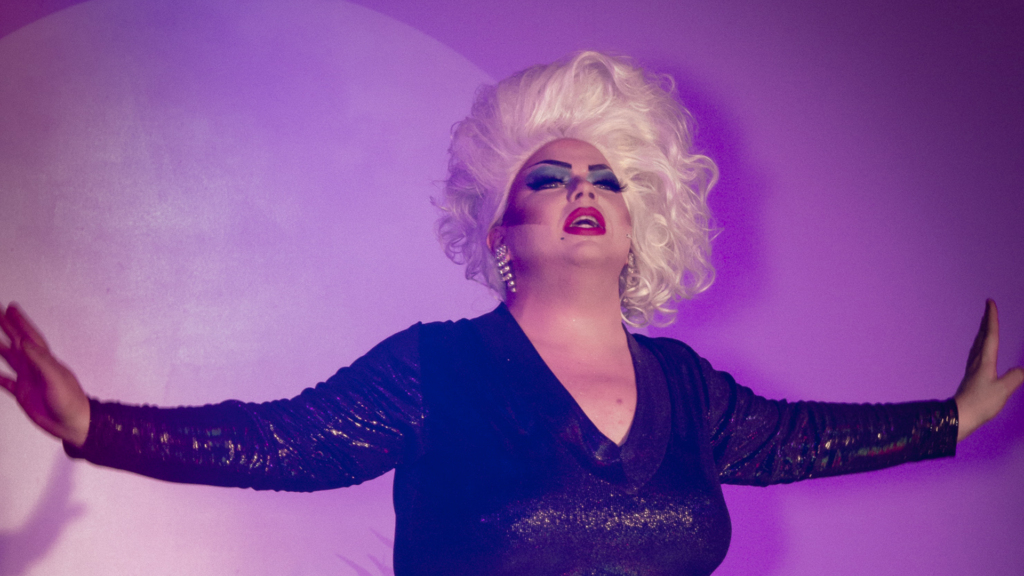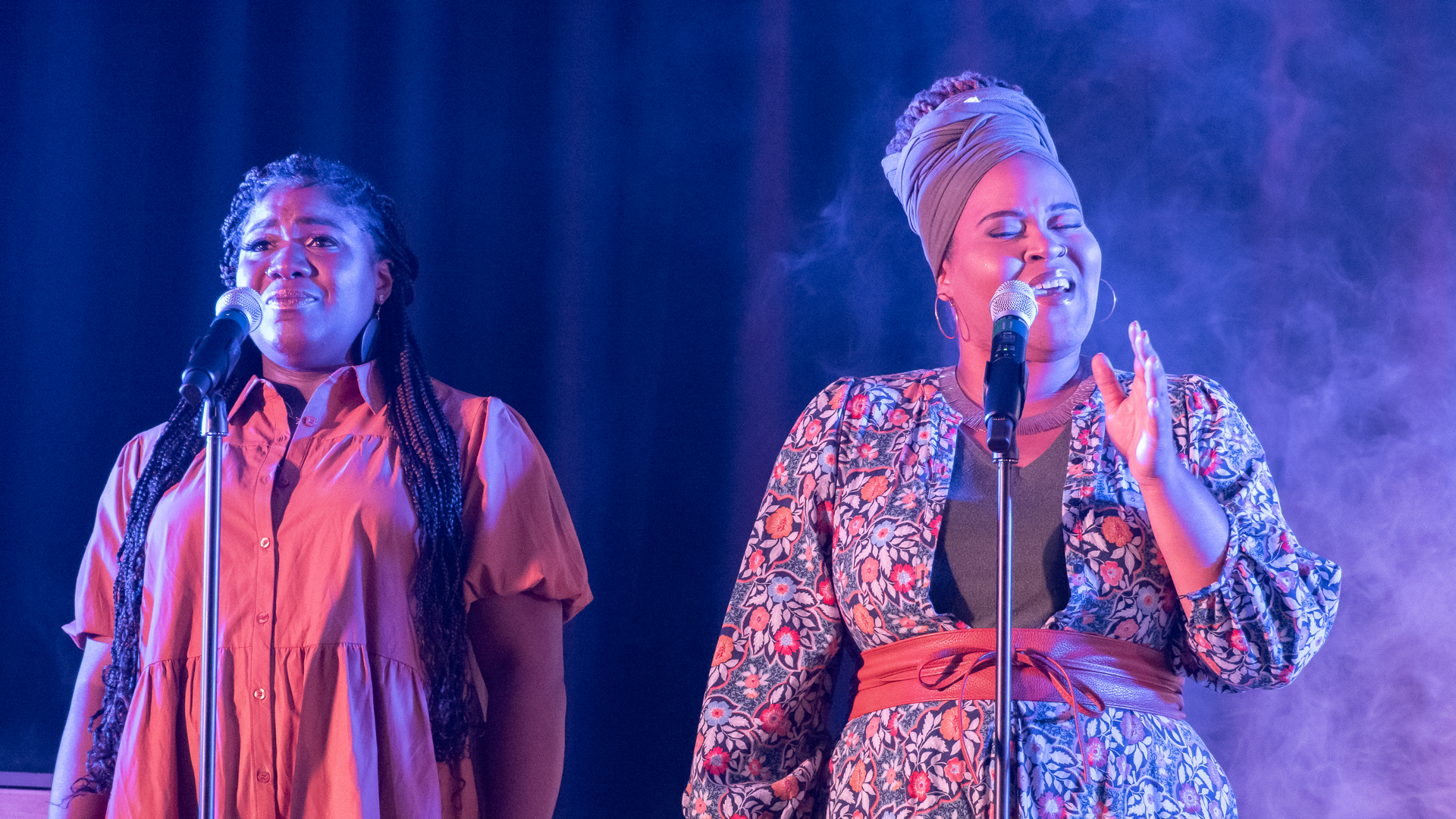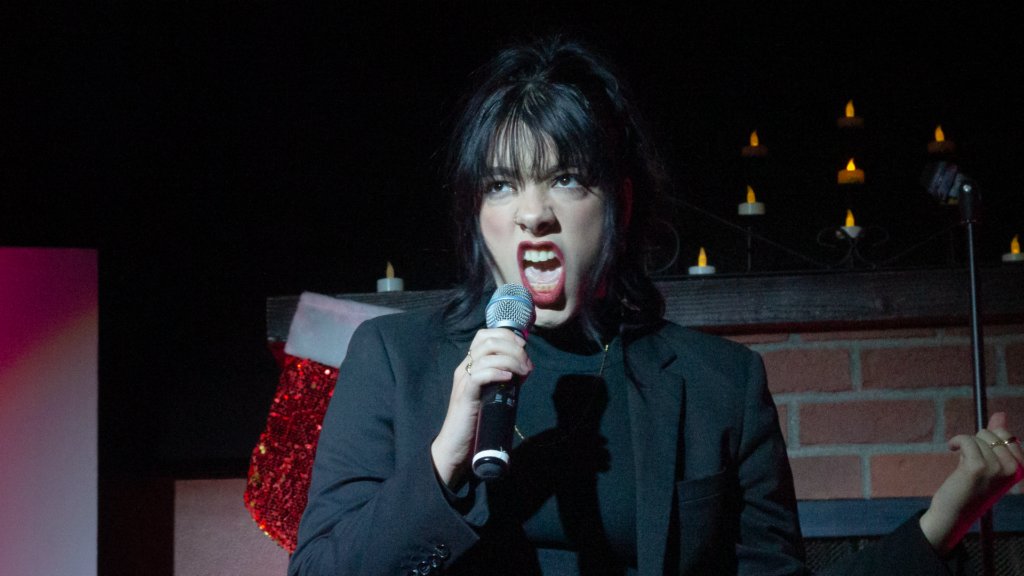In the heart of Athens’ Highlands, an area now in ruins under the oppressive rule of Duke Theseus, we find a world where love is dictated by harsh laws and societal expectations. Theseus, a staunch enforcer of anti-homosexual decrees, contrasts sharply with his empathetic and love-driven fiancée, Hippolyta. As preparations for their nuptial hour begin, tensions rise with the arrival of Egeus, Hermia, Lysander, and Demetrius. Egeus demands that Hermia marry Demetrius, despite her love for Lysander. Meanwhile, Helena, a twink hopelessly in love with Demetrius, finds himself caught in a web of unrequited love and societal scorn.
Desperate to escape the oppressive constraints of their society, Hermia and Lysander flee into the enchanted ruins of the Highlands, a place still pulsing with the echoes of freedom and expression. Here, they encounter Oberon, the Leather Daddy King, and Titania, the Supreme Drag Queen. The couple’s presence in this magical realm stirs up old conflicts between the fairy monarchs, particularly over the custody of a changeling child who symbolizes their deep-seated desires and power struggles. Amidst this supernatural backdrop, Puck, Oberon’s mischievous servant, is tasked with manipulating the lovers’ affections, leading to a series of comedic and poignant misunderstandings.
As night falls, the Highlands transform into a vibrant spectacle of dance and music. Titania opens the act with a rousing rendition of “History Repeating,” setting the stage for a night of magical mayhem. Puck’s antics reach their peak as he uses a potent drug to alter the lovers’ perceptions, causing Lysander to fall for Helena and complicating the already tangled web of relationships. The infusion of contemporary hits like “Dance Monkey” and Madonna’s “Frozen” injects modern energy into the narrative, creating a dynamic interplay between the timeless themes of Shakespeare’s original and the vibrant, defiant spirit of LGBTQ culture.
In the midst of these transformations, Titania’s drag kingdom becomes a haven for the oppressed and the misunderstood. Helena, rejected by Demetrius, finds solace and empowerment through a dramatic drag makeover, highlighting themes of self-discovery and acceptance. Titania’s court, filled with gender-nonconforming fairies and vagrants, becomes a symbol of resistance and resilience. The contrast between the law-bound world of Theseus and the liberating chaos of the Highlands underscores the play’s exploration of identity, love, and societal defiance.
The climax of the production sees Oberon and Titania’s conflict over the changeling twink come to a head, resolved through a series of magical interventions and heartfelt reconciliations. The lovers’ true affections are restored, and the oppressive laws of Theseus are ultimately challenged by the transformative power of love and unity. As dawn breaks, the Highlands, once a symbol of ruin, are now a beacon of hope and renewal, celebrating the diverse forms of love and identity that have triumphed over prejudice and oppression.
In a dazzling finale, the characters come together in a joyous celebration of love and acceptance. The production closes with a powerful message: that love, in all its forms, is a force that can transcend societal boundaries and ignite change. “A Midsummer Night’s Dream: A Queer Tale” leaves its audience with a sense of inspiration and a call to action, reminding them of the enduring power of love to transform and unite. This bold reimagining of Shakespeare’s classic is a testament to the resilience and vibrancy of the LGBTQ community, offering a theatrical experience that is both timeless and profoundly contemporary.
This story would not be complete, without its play within a play, a hilariously campy and chaotic rendition of “The Most Lamentable Comedy and Most Cruel Death of Pyramus and Thisby,” performed by a group of amateur actors known as the Mechanicals. Led by the assertive Quince, the cast includes Bottom, who sports a comically oversized phallus on his hat, and Flute, who begrudgingly plays the role of Thisby in drag. The troupe’s rehearsal and eventual performance are filled with comedic blunders and exaggerated theatrics, ultimately serving as a delightful parody of melodramatic romance and showcasing the actors’ endearing ineptitude. This humorous subplot underscores the main themes of love and transformation while providing a light-hearted and entertaining interlude in the larger narrative.
MEET THE CAST & CREW
Having problems checking out on our website? Click Here for Our Online Box Office
Having problems checking out on our website? Click Here for Our Online Box Office
Can we call you DaddY?
Drag Daddy Productions is an LGBTQIA+ owned and operated, nonprofit 501(c)(3) performing arts company founded in Louisville, Kentucky, by Executive Director and Producer, Tony Lewis. It is our mission to provide performance and rehearsal space; as well as, opportunities to trans, non-binary, drag, queer and ally individuals alike. With a focus on equitable pay for performers, we strive to provide safe and healthy spaces for all performers, crew members, volunteers and audience members. Our programming features original works written and/or created by queer artists, unconventional casting of musical theater and other forms of alternative story-telling.
